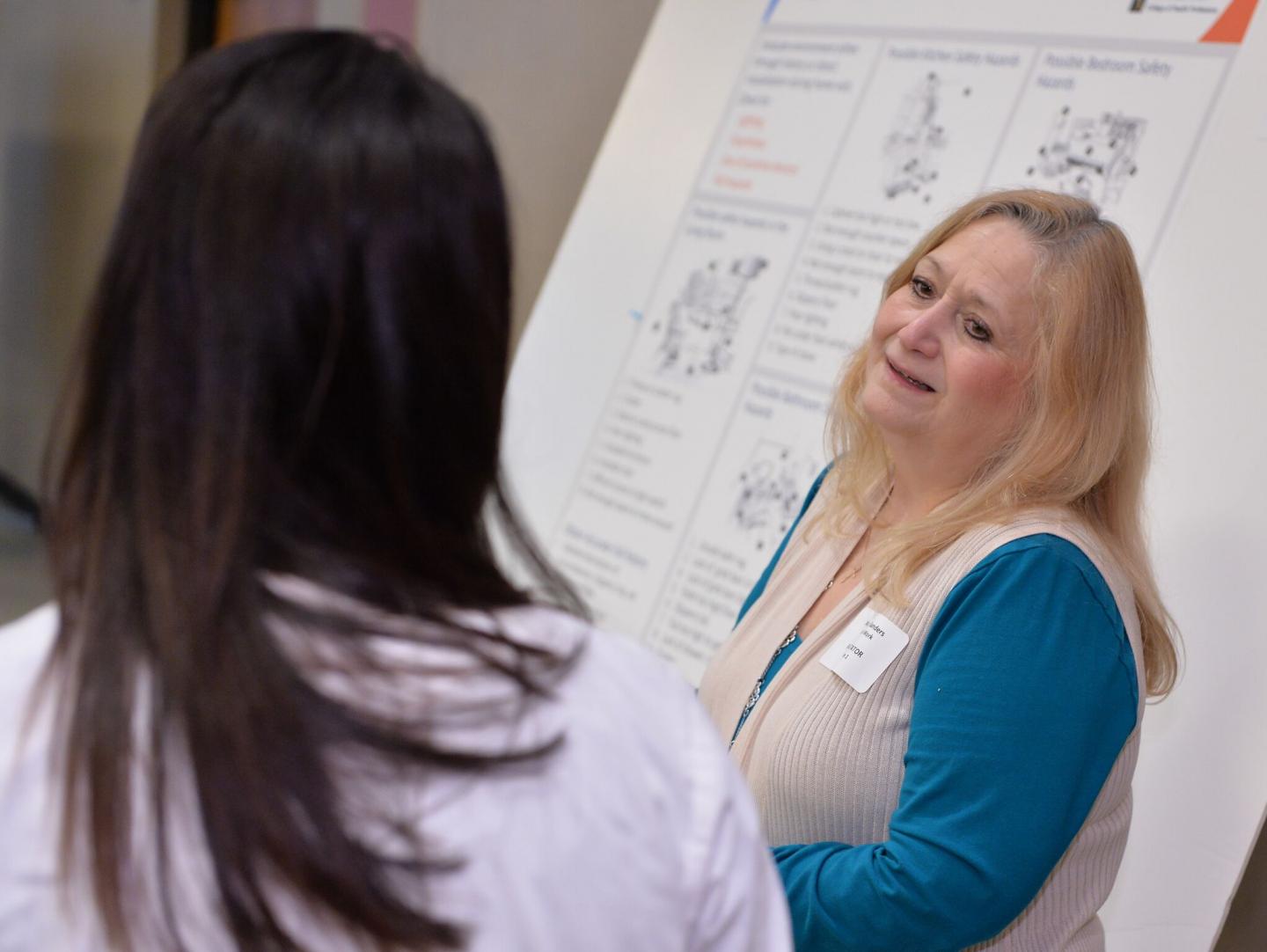
IMAGE: Shown facilitating an interprofessional geriatrics training session, Sanders is the project’s PI and an associate director in NEOMED’s Department of Family and Community Medicine Office of Geriatrics. view more
ROOTSTOWN, OHIO– Northeast Ohio Medical University received a notice of award for a multimillion-dollar grant from the Health Resources and Services Administration’s Geriatric Workforce Enhancement Program. HRSA, an agency of the U.S. Department of Health and Human Services, will provide NEOMED and its partner institutions with $3,715,904 over five years.
The project, titled Infusing Interprofessional Geriatric Education into Primary Care and
Community Environments, expands the scope of a long-standing academic, medical practice and community-based organization partnership that focuses on improving the knowledge and skills of the primary care workforce to optimize outcomes in the geriatric population.
Key collaborators from sub-award institutions include Summa Health; Direction Home Akron Canton Area Agency on Aging & Disabilities; Western Reserve Area Agency on Aging; The University of Akron; Cleveland State University; AxessPointe Community Health Centers; Benjamin Rose Institute; the Alzheimer’s Association; Saber Healthcare Group; Habitat for Humanity of Summit County; Summit County Public Health; Ohio Council for Cognitive Health; and Hospice of the Western Reserve.
“We’re not only educating primary care physicians,” said Margaret B. Sanders, M.A., L.S.W., the project’s principal investigator and an assistant professor at NEOMED. “This is truly interprofessional and interagency education as well as collaboration.”
Over the next five years, NEOMED and its partners will use online didactics, simulation and experiential training to improve knowledge of the primary care needs of older adults, including those with ADRD ? Alzheimer’s Disease and Related Dementias.
“As social determinants of health have shown to be the primary drivers of outcomes in older adults, the grant will also focus on medication management, accessing resources, completing advance care planning, respite, and navigating issues regarding caregiving,” said Susan Hazelett, M.S., the project’s manager and a registered nurse at Summa Health.
“We’re enhancing the geriatrics knowledge of all communities ? primary care and community-based care providers; faculty, students, residents and fellows; as well as patients, their families and their caregivers,” added Sanders, who also serves as the associate director in NEOMED’s Department of Family and Community Medicine Office of Geriatrics.
Teamwork, training and technology
With the number of Ohioans age 65 and over projected to increase significantly over the next 10 years, even more seniors will be seeking medical care ? increasing demand on the geriatric health care workforce. Projections indicate that many health care providers will be retiring and fewer physicians will be entering primary care. This requires an increased role of other care providers working as a team with primary care physicians to ensure effective patient-centered care for the geriatric population.
NEOMED and its partners will implement an experiential training program that includes clinical, community based experiences and technology ? i.e., Project ECHO (Extension for Community Healthcare Outcomes)? that uses didactics, simulation and experiential training and mentoring through videoconferencing to train primary care providers, faculty, students and patients, families and caregivers, who earn a Geriatric Resource Certificate (GRC).
“Those who complete the GRC will have access to an established integrated Care Management Interprofessional Team (CMIT) for continued access to geriatric mentoring for complex cases and access to providers experienced in addressing social determinants of health,” according to the project’s co-director, Jennifer Drost, D.O., of Summa Health.
The partners also plan to develop, implement and expand a program to promote dementia friendly communities across the State of Ohio through the state’s Area Agencies on Aging, the Alzheimer’s Association, and Benjamin Rose Institute on Aging.
For those who question the benefit of increasing the knowledge of non-clinicians, the partners site the results of a 2010 Community Health Assessment conducted by a three-health system collaborative and which included the self-reported needs of patients and their caregivers. The assessment showed that community members desired more access to information regarding illness prevention and chronic illness management.
And with the support of the HRSA grant, which helps all communities get involved, Sanders states, “It is our hope that this will lay the foundation for a Center of Excellence in Geriatrics at NEOMED!”
###
About NEOMED
For more than 40 years, Northeast Ohio Medical University has worked in collaboration with its educational, clinical and research partners to successfully train health professionals and medical researchers who serve and impact the region and beyond. The University trains students in a team-based, interprofessional environment and offers Doctor of Medicine (M.D.) and Doctor of Pharmacy (Pharm.D.) degrees, in addition to master’s and doctoral degrees and research opportunities in other medical areas. //www.
Disclaimer: AAAS and EurekAlert! are not responsible for the accuracy of news releases posted to EurekAlert! by contributing institutions or for the use of any information through the EurekAlert system.

